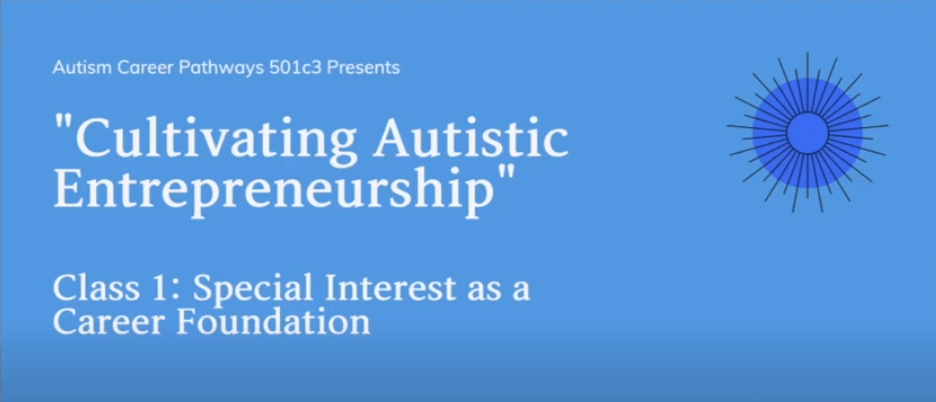Honored that Maisie Soetantyo of Autism Career Pathways invited me to teach as part of the exciting 10-part course, “Cultivating Autistic Entrepreneurship.” On June 18, 2021, Had a Session about “Inclusivity Employment Ideas” in Class 1: “Special Interest as a Career Foundation.”
Dogs and Disabilities: Two Olim Launch Dogiz Walking Service
Original Article Published On The Jerusalem Post
Two olim, one from London and one from Khazakstan discovered their mutual love for dogs in a class on start-ups, and founded their own.
When two immigrants – one from northwest London and one from Khazakstan – met in an IDC Herzliya class on start-ups, they discovered their mutual love for dogs.At the time, they could have never imagined a day when they would join forces to start Dogiz, a unique and growing Tel Aviv-based dog-walking service that also creates career opportunities for people with disabilities. Meet COO and founder Danny Djanogly, and CEO Alon Zlatkin.
When Djanogly was 18, he was looking for something “a bit more” than a traditional gap-year program in Israel. He decided to become a lone soldier in the IDF’s Kfir Brigade. After a post-army trip, he began studying government and politics at the IDC and soon after adopted Mufassa, a dog he describes as half German Shepherd and half Japanese Akita. “It was a game-changer,” reports Djanogly.
Zlatkin moved to Israel in 1991 at the age of five with his family from Almaty, Kazakhstan. He grew up in Ariel, attended yeshiva, and served six years in Israel’s elite Shayetet 13 unit of the Israel Navy, often referred to as the Navy Seals. Following a stint in West Africa working on maritime strategy, piracy and humanitarian projects, Zlatkin returned to Israel and began his studies in business and economics at IDC Herzliya.
When Djanogly and Zlatkin met, they commiserated on the difficulties of being both students and dog owners.
“We found it hard to make arrangements for our dogs,” reports Djanogly. “We had to rely on friends, neighborhood grannies and others. It was not reliable. We came together and said, ‘Why not do it ourselves?’” They began discussing ideas for what would become Dogiz, and the dog walking business and platform began.
In 2015, they were accepted into the HIVE, an accelerator for new immigrants and won a Google competition that landed them their first $100,000 investment. They have also received support from Samurai Incubate Inc, an early-stage Japanese Venture Capital firm with branches in Tokyo, Rwanda and Tel Aviv. Samurai has invested in more than 30 Israeli start-ups.
“Tokyo has more dogs than children,” observes Djanogly playfully, speculating as to why Samurai might have been interested in supporting Dogiz.
Two years ago, Djanogly and Zlatkin had the good fortune, through a funder, to meet Aviad Friedman, Israeli businessman, chairman of the Israeli Association of Community Centers (IACC), author, advisor in several Israeli ministries and former advisor to prime minister Ariel Sharon. He is also the father of Avrumi, a 22-year-old man with disabilities.
DJANOGLY NOTES that Friedman was impressed with the company’s concept, shared data on the high rate of unemployment among people with disabilities, and suggested they work together on the project, which had great potential for success if it would train and hire people with disabilities.
“We stumbled upon disabilities by accident,” reports Djanogly, who read Friedman’s book, B’yom Bo Tikrah Li Aba, and took his advice about hiring people with disabilities.
Friedman also serves as chairman of the board for the now 18-month-old company, which currently employs 12 dog walkers with disabilities and hopes to soon increase to 20.
Friedman reports, “This business is good for the dog and for the walker. Both thrive on routines. It is better when every day looks the same. An 8 o’clock walk is 8 and not 8:30, and the walk is always on Dizengoff Street, not Allenby!”
His son, Avrumi, became the company’s first autistic employee.
The program involves a one-month course on how to work with dogs and how to use the scheduling app. A counselor offers ongoing support for workers with disabilities. Zlatkin and Djanogly are determined to employ even more people with disabilities.
“We want to increase the number of employees with disabilities from the current 10% to 20%. Our goal is to become one of the top three largest employers of people with disabilities in Israel.”
Suzy Goldberger, the chairwoman of Ken’s Krew, a US-based nonprofit that supports 500 adults with neuro-developmental disabilities in the workplace, praised the efforts of Dogiz.
“Dogiz shines a light on the benefits to employers of hiring workers with disabilities. This population is eager to work, loyal and hard-working. Employee turnover is far lower than the norm, and overall employee morale is enhanced. Dogiz is a leader in understanding that hiring workers with disabilities is not charity, it is good business. Ken’s Krew has enjoyed sharing best practices with Dogiz, and hopes for their continued success.”
Through the process of beginning and running their start-up, Djanogly, 31, and Zlatkin, 36, have become close friends. They spend so much time together that the good-natured, unmarried Djanogly playfully reports, “I am his second wife.” Zlatkin is married and has a two-and-a-half year old daughter.
The two plan to take their Tel Aviv pilot program and expand it to London and other cities around the world. They are also developing Dogiz Health, which uses artificial intelligence and focuses on digital health for dogs. Fortunately, they continue to receive inspiration and support from friends, investors, and perhaps most importantly, an inner circle of dogs. These have included Zlatkin’s late dog, Jack, a German Shepherd who recently died of cancer (he continues to be listed on the company’s website as “The Godfather”), and Djanogly’s dog, Mufassa, the “Chief Dog Officer.”
In no time, these two immigrants are likely to meet and walk all of Tel Aviv’s estimated 41,000 dogs!
Fusing Bluegrass With Judaism, Nefesh Mountain Seeks to Uplift During Challenging Times
Original Article Published On The JNS
They have performed in hundreds of synagogues in the United States and around the world, representing Jewish American culture, tradition, values and spirituality in the world of Americana roots music.
Thanks to the Jewish holiday of Shavuot and the Torah, Mount Sinai is the best-known mountain in Jewish history. If the husband-and-wife bluegrass team of Eric Lindberg and Doni Zasloff continue their climb through the music world, their Nefesh Mountain band may be the next mountain the Jewish and secular world is buzzing about. Their third full-length recording, “Songs for the Sparrow,” to be released on June 11, may help them in their quest.
“The music of Nefesh Mountain was new to me until last fall when I discovered them on social media and then quickly booked them for a performance at a Covenant Foundation event, and their performance did not disappoint,” reports Harlene Appelman, executive director of the Covenant Foundation, referring to their prestigious annual event—this year held virtually and attended by hundreds in the Jewish world. “The spirit and soul of their music lifted our spirits and added so much joy to our morning.”
Nefesh Mountain arrived on the bluegrass and American music scene in 2014. They have since performed in hundreds of synagogues in the United States and around the world, representing Jewish American culture, tradition, values and spirituality in the world of Americana roots music.
Zasloff and Lindberg spoke with JNS via Zoom from their home in Montclair, N.J., as they await the birth of a child later this month. Their love of music and each other is evident.
“We met playing music,” reports Lindberg. “It is a love story between friends who were in synch, finding common themes in our lives—between Jewish culture, spirituality, bluegrass and country music. We realized there is very little representation of Jewish culture in Americana music. We wanted to tell the story of what it means to be a Jewish American.
“Our challenge was to introduce banjos and bluegrass to the Jewish community over the years.”
‘Driving out the hatred’
Zasloff and Lindberg have been telling this story since their self-titled “Nefesh Mountain” album in 2016, which was followed by “Beneath the Open Sky” in 2018. Over the years, they have collaborated with and forged a kinship with such bluegrass luminaries as Jerry Douglas: (dobro), Sam Bush (mandolin) and Bryan Sutton (guitar).

“We’re so grateful to have these incredible musicians join us on these albums,” says Zasloff. “For them to throw their hearts and souls into this music and really understand this message of driving out the hatred that still very much exists in the world today, it’s so moving and emotional for us.”
Their third album, “Songs for the Sparrow,” was inspired by an August 2018 family trip to Eastern Europe. “We tracked down the towns where our families are from, and it was devastating to see the destruction of the Holocaust firsthand and to know that we’re not so far removed from that time,” they observed. The two say they were profoundly moved by the trip.
“The album is about love and was to comfort ourselves after the trip to Europe. The album is pouring musical love on hate,” recounts Zasloff. “People are in pain. This is meant to give a big hug. We all need it.”
Zasloff notes that in October, two months after their return from Europe, the mass shooting took place at the Tree of Life*Or L’Simcha Synagogue in Pittsburgh’s Squirrel Hill neighborhood. Eleven Jewish worshippers were shot and killed during Shabbat-morning services and six wounded in the most deadly act of anti-Jewish violence in America. “It flat-lined us,” reports Lindberg. “Being Jewish and part of a minority group is a scary thing.”
It prompted Zasloff and Lindberg to compose the song “Tree of Life,” a prayer and anthem to respect and honor those who were killed, their families and their fellow suffering Jewish communities.
The album’s title, “Songs for the Sparrows” was inspired by both the trip to Eastern Europe and the Pittsburgh shooting. “It comes from us thinking about the many groups of people who are horribly discriminated against in the United States. To us, sparrows represent a small but mighty voice. That’s why we chose to name the album for them—they’re often overlooked, but they’re beautiful and everywhere,” says Zasloff.
The pair is looking forward to resuming touring in September after being away from in-person audiences due to the year-plus-long coronavirus pandemic.
“Now that we’ve had the experience of playing to so many different audiences and hearing people tell us how much our music uplifts them, we know that it’s really working and fulfilling some kind of need,” says Lindberg. “Because of that, this album feels much bolder than previous records.”
Zasloff adds, “This album is very much a celebration; it’s about adventure and endurance and pushing through the difficult times. We’re looking at some painful things in these songs, but it always comes back to the idea of persevering and letting love be your fuel.”
A long, Strange Six Months For Israeli NBA Player Deni Avdija
Original Article Published On The JNS
The 20-year-old got off to a fast start, only to get injured and have to sit out 18 games, as the Washington Wizards went to the playoffs, eventually ceding to the Philadelphia 76ers.
A little more than six months ago, Israel and the basketball world had high hopes for 19-year-old Deni Avdija. The 6-foot-9-inch former Maccabi Tel Aviv small forward was No. 9 in the first round of November’s NBA draft by the Washington Wizards. He hit the ground running. He endured strict NBA coronavirus restriction protocols, a grueling travel schedule and being far from family, friends and country.
Avdija got off to a fast, fairly successful start. The young rookies started in 15 games, averaged 6.3 points, 4.9 rebounds and 1.2 assists in the 54 games he played this season.
Almost five months to the day of his draft date—April 21—Avdija’s promising rookie season came to an abrupt end. He landed awkwardly on his right leg in a game against the Golden State Warriors on April 21. Avdija left the court in a wheelchair and was diagnosed with a right fibular hairline fracture.
While expected to make a full recovery following a 12-week rehabilitation process, he was deemed out for the season and would miss the team’s unexpected entry in the playoffs. Avdija has been seen from time to time in a walking boot. He was also observed putting up some shots in a seated position prior to the Wizards facing the Boston Celtics in the NBA play-in tournament. But he has not spoken to the media, and the Wizards haven’t shared much on his progress.
That changed on June 3.
Following the Wizards being eliminated in five playoff games by the No. 1 seeded Philadelphia 76ers, Wizards team general manager Tommy Sheppard and coach Scott Brooks spoke with the media for nearly 90 minutes. This final media session of the season addressed the season as a whole; star players Bradley Beal and Russell Westbrook; their young players and frequently injured players; and the future of Brooks whose five-year contract is about to expire. They also spoke about Avdija.
Early in the press conference, Sheppard reported, “Deni is in week six of an injury. I think he will be cleared after 12 weeks. The most important thing to me is his therapy. He was with us on this last road trip; I watched his therapy, I watched him out on the floor. I am pleased with his progress. Our hope is to have him 100 percent healthy by the time summer league rolls around, but it is not imperative that he play in summer league. We’ll make that evaluation at the right time.”
He noted that Avdija missed the last 18 games of the season and was not able to join in the team’s short-lived playoff run.
‘We have a lot of hope in his future’
Brooks has been supportive of his young Israeli player throughout the season and has high hopes for him. He has also offered a realistic assessment of Deni after each game. “I like his potential. He played a good number of minutes this year,” he said.
“There were some really good moments and some when you could really tell he was 19 [he turned 20 during the season]. But we have a lot of hope in his future,” said Brooks. “It is unfortunate he got injured and is going to miss 10 to 12 weeks, and a chance to be in the playoffs. He is a big body. He is a pretty good athlete. He shows toughness. He is a good rebounder, and his shooting is developing itself.”
Brooks said he has enjoyed watching his star players Bradley Beal and Russell Westbrook take Avdija and other rookies under their wing. “They like these young players,” he noted, and have served as mentors to Avdija and others.
Sheppard reported that “Deni is doing fine. He is out of the boot and able to do spot shooting.” He added that the team is having him avoid jumping during workouts to help assure a complete recovery and that he is also working on his cardio, which can be difficult while recovering from a lower-body injury.
Other than that, “he is doing fantastic,” reassured Sheppard. “I think Deni is on track to be an impact player in the future.”
It seems clear that Avdija will be back with the team next season, ready to continue growing and developing as a second-year player in the NBA. Sheppard stopped short of reassuring fans that Brooks would be back with the team next season.
It was an up and down season for the Wizards. They started 0-5, and along the way, dealt with COVID-19, had several weeks without games or practices and went on to 17-32 record. Avdija was one of several players to face injuries.
The Wizards battled back down the stretch and finished with the eighth-best record in the Eastern Conference. They earned a play-in berth and then qualified for the playoffs. After going down 3-0 in the playoffs with the Sixers, the Wizards won game four with an exceptional 122-114 win. The Wizards’ season came to an end with a 129-112 loss to the Sixers on Wednesday night.
Avdija and his teammates will benefit from the much-needed rest, say the coach and manager. Added Sheppard: “Our goal is to have Deni at training camp and have him a big piece of what we are doing.”



